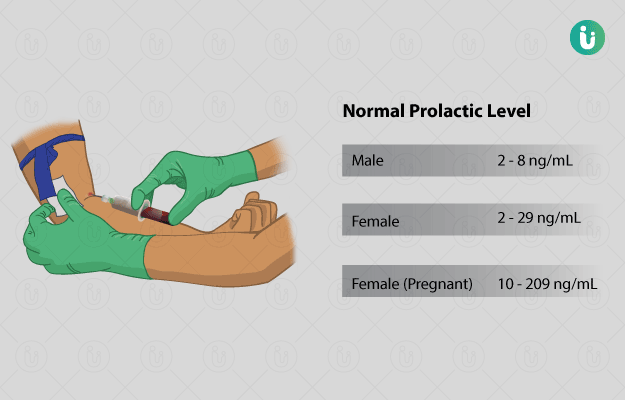What is Prolactin test?
Prolactin test is performed to determine prolactin levels in blood. Prolactin is a hormone produced by pituitary gland, a pea-sized gland at the base of brain, which helps in metabolism, growth and sexual development. Prolactin stimulates milk production during pregnancy and helps maintain milk supply during breastfeeding. When a baby suckles onto mother’s breasts, signals are sent to the pituitary gland to produce more milk. If the woman does not breastfeed the baby, prolactin levels return to normal. In nonpregnant women, prolactin helps in maintaining the menstrual cycle. Prolactin is associated with sperm production in men.








































